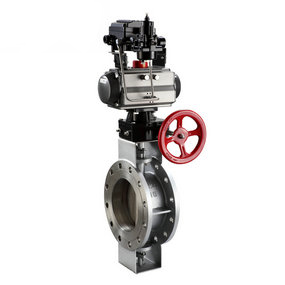Which is a good video on the working principle of the wafer type pneumatic butterfly valve? Pneumatic butterfly valves can be used in many fields, but they are not suitable for all occasions. How should we choose suitable pneumatic butterfly valves?
I have sorted out the characteristics of pneumatic butterfly valve and its advantages and disadvantages for you before. Do you remember? It doesn't matter if I don't remember. I will review it for you later. The first thing is to talk about the scope of application of pneumatic butterfly valves.
When selecting pneumatic butterfly valve, we should first understand its characteristics, and then select it through the environment. The characteristics of pneumatic butterfly valve are that its shape can be designed as required, its stiffness can be adjusted, its damping ratio is greater than that of tension spring, its shear resistance, tensile resistance, compression resistance, and its device is simpler. Its defects are high natural frequency, short service life, and limited operating environment. Generally, the operating environment temperature should be controlled between - 30-70 ℃, and some chemical corrosive environments should select pneumatic butterfly valves suitable for raw materials for use. At present, the main products suitable for producing pneumatic butterfly valves are: natural rubber, neoprene rubber, butadiene rubber; The market is full of pneumatic butterfly valves made of recycled rubber.
It is hard to handle without tension spring, nonlinear load compression ratio, rough surface, poor damping effect and easy to age. Remember to choose carefully to avoid purchasing such pneumatic butterfly valves. Because the pneumatic butterfly valve has the above characteristics, it is widely used on the bogie of the running part of the locomotive. Pneumatic butterfly valves used on electric locomotives include central support cone, axle box pull rod elastomer, side bearing stack, motor suspension pad, elastic wheel, elastic gear, air tension spring, bow block and ball joint of transmission device, coupler buffer, etc.
The primary effect of pneumatic butterfly valves used on locomotives is to accept contraction stress, shear stress and changing moment, as well as two or more stress combinations. Each pneumatic butterfly valve has a certain special function and plays an important role. The speed of the railway locomotive is constantly increasing, and the dynamic effect on the line is sharply increased, causing severe wear of the line, tire and components of the running part of the locomotive.


